About us
The UVic Climate Connector is a new campus-wide initiative created to strengthen connections amongst UVic climate and sustainability researchers, groups, and institutes, and with climate solutions seekers in Victoria, British Columbia and beyond, all with the goal of accelerating climate action.
The Climate Connector is supported by the Vice-President, Research & Innovation and the Pacific Institute for Climate Solutions.
Steering committee
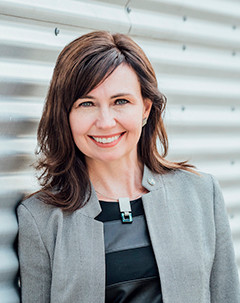
Dr. Julia Baum
Professor; Special Advisor, Climate Biology
Julia Baum's research group advances understanding of climate change impacts in the ocean and nature-based solutions in coastal ecosystems. A professor of ocean ecology and global change, a UVic President’s Chair and the Special Advisor Climate, Julia catalyzes climate action initiatives and facilitates connection in the climate research community. On top of leading an internationally recognized research program, Julia is the director of the Coastal Climate Solutions Leaders program—a first-of-its-kind graduate training program. She has been recognized throughout her career with many prestigious honours, including membership of the Royal Society of Canada’s College of New Scholars, Artists and Scientists (2017) and becoming an NSERC E.W.R. Steacie Memorial Fellow (2018).
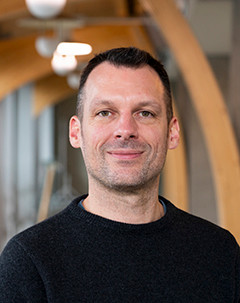
Philip Burgess Cox
Communications Strategist Accelerating Community Energy Transformation (ACET)
Phil is an award-winning storyteller and communications generalist with multiple areas of specialization, including communications strategy, branding, media relations, reputation management and partner engagement. He collaborates with ACET researchers and community-, industry-, and government partners to drive clean energy innovation and advance climate action across Canada.
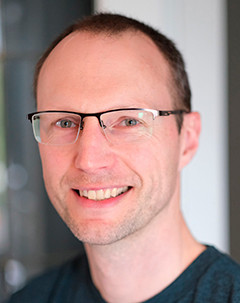
Dr. Curran Crawford
Executive Director, ACET. Professor ACET, IESVic, Mechanical Engineering
Curran Crawford’s research develops and applies computational tools to optimize renewable energy system designs and operations. Application areas include offshore wind and tidal energy, electrified transportation, energy storage, e-fuels production and carbon capture and sequestration. Crawford leads projects that bridge cutting-edge technology development with practical systems solutions, helping drive innovation in clean power generation, energy planning and decarbonization pathways to benefit remote, rural, urban and Indigenous communities.
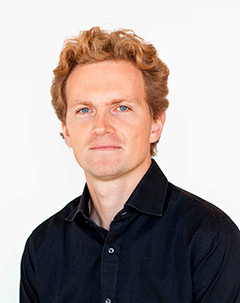
Dr. Peter Dietsch
Professor Philosophy
Peter Dietsch is a philosopher and economist, and professor in the Department of Philosophy at University of Victoria. His research focuses on issues of economic ethics, notably on income inequality, tax justice, normative dimensions of monetary policy, and on climate finance. Dietsch is the author of Catching Capital – The Ethics of Tax Competition (OUP, 2015), co-author of Do Central Banks Serve the People? (Polity Press, 2018), and co-editor of Global Tax Governance – What is Wrong with It and How to Fix It (ECPR Press, 2016). Dietsch received the Friedrich Wilhelm Bessel Research Award from the Humboldt Foundation in 2021.
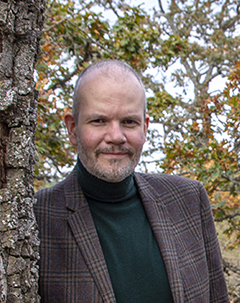
Sean Holman
Associate Professor Writing
Sean Holman’s research focuses on how we use and misuse information, particularly in the context of catastrophic climate change, biodiversity loss, and democratic decline. He is the founding director of the Climate Disaster Project, an award-winning teaching newsroom that works with climate-impacted communities to document and investigate their stories. A frequent commentator on climate change coverage and government secrecy, he joined the University of Victoria in 2021 from Mount Royal University, where he was an associate professor of journalism. Before academia, he was an investigative journalist and documentary filmmaker, best known as the founder of Public Eye and producer and host of Public Eye Radio.
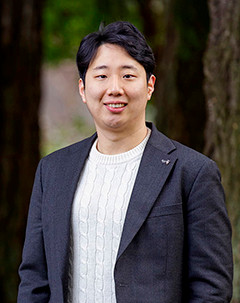
Dr. Jason Keonhag Lee
Assistant Professor, Canada Research Chair in Energy Systems Innovation (Tier II) Mechanical Engineering
Jason Keonhag Lee’s research focuses on advancing clean hydrogen production technologies through electrochemical energy conversion, collaborating closely with Accelerating Community Energy Transformations (ACET) and Institute for Integrated Energy Systems (IESVic) at the University of Victoria. He earned his Ph.D. from the Department of Mechanical and Industrial Engineering at the University of Toronto and obtained his M.A.Sc. and B.Eng. from the Department of Mechanical Engineering at the University of Victoria.
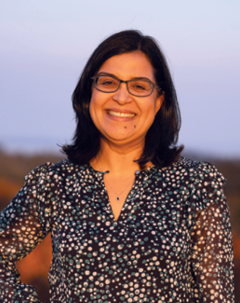
Dr. Basma Majerbi
Associate Professor UVic Peter B. Gustavson School of Business
Basma Majerbi is an associate professor at Gustavson School of Business and director of the Impact Investing Hub, a research and education center whose mission is to accelerate investments in climate solutions. She’s the recipient of multiple awards related to climate and sustainable finance including Foresight’s BC Cleantech Educator, Canada’s Clean50 Award, and King Charles III Coronation Medal. Basma is a member of the Advisory Council for the BC ESG Centre of Excellence, a Board Director of the South Island Prosperity Partnership and is Chair of the Advisory Board of the COAST Center for Ocean Applied Sustainable Technologies.
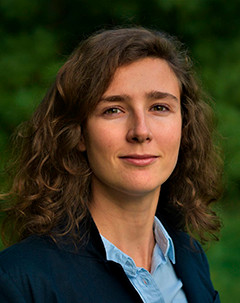
Dr. Laura Minet
Assistant Professor Civil Engineering
Dr. Minet’s research addresses issues of population exposure to two major atmospheric environmental challenges: air pollution and climate change. She studies various sources of air pollution, including anthropogenic sources such as the transportation and oil and gas sectors, and natural sources such as wildfires, and investigates how climate change, in particular extreme heat events, could impact ambient concentrations of air pollutants. She works in partnership with local municipalities and communities, as well as epidemiologists and family doctors, to unveil the best practices to protect populations from air pollution and extreme heat.
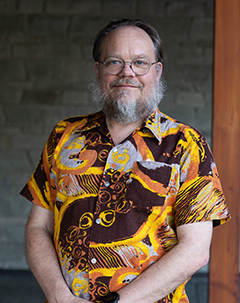
Dr. Adam Monahan
Professor Earth and Ocean Sciences
Adam Monahan specializes in atmospheric physics and data science. His research focuses on understanding and modelling near-surface processes using physics-based and data-driven approaches. Adam is known for his work using statistical and mathematical models to study atmospheric variability and physical relationships between atmospheric processes on different scales. As a dedicated educator, he mentors students in climate and data science and contributes to advancing knowledge on climate modelling and uncertainty.
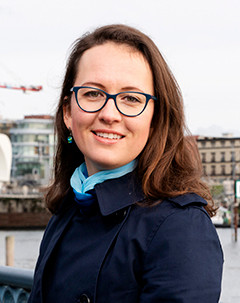
Dr. Katya Rhodes
Associate Professor Institute for Integrated Energy Systems, Public Administration
Katya Rhodes is an Associate Professor in the School of Public Administration researching low-carbon economy transitions and climate policy design. Drawing on tools such as surveys, energy-economy modeling, and media analysis, her work explores the intersection of climate sustainability and economic growth, as well as trade-offs between climate policy effectiveness and acceptability. Katya represents British Columbia on Canada’s Sustainable Development Advisory Council, advising on the UN’s Sustainable Development Goals. Previously, Katya worked with British Columbia’s Climate Action Secretariat, leading GHG emissions modelling and economic analysis for the CleanBC plan. Her expertise bridges policy, academia, and practical technology solutions.
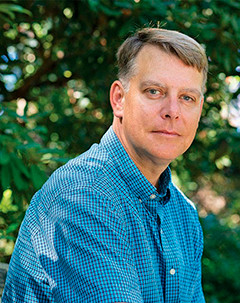
Dr. Stephen Ross
Professor English
Stephen Ross is a Professor of English and Cultural, Social, and Political Thought. He has published 11 books and dozens of articles focussed on twentieth- and twenty-first-century literature, philosophy, and culture. His relatively new work on climate is focussed on the stories we tell about climate change and how they can help us achieve what Andrew Boyd calls “a better catastrophe.”
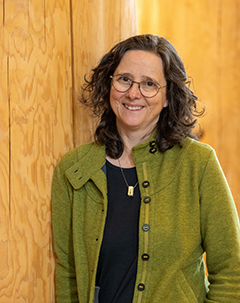
Dr. Kara Shaw
Professor Environmental Studies
Kara Shaw’s research and teaching focus on the social and political dynamics of responses to climate change, with a particular focus on how energy transitions can support communities that are more just, diverse, and resilient. Past research had engaged with feminist theory and practice, international relations, Indigenous politics, and environmental politics, always with a focus on understanding how social movements are transforming political possibility. She is the Academic Director of the Transformative Climate Action Certificate. She is also Professor in the School of Environmental Studies, Academic Director of the UVic Sustainability Scholars Program, and a member of the Institute for Integrated Energy Systems.
